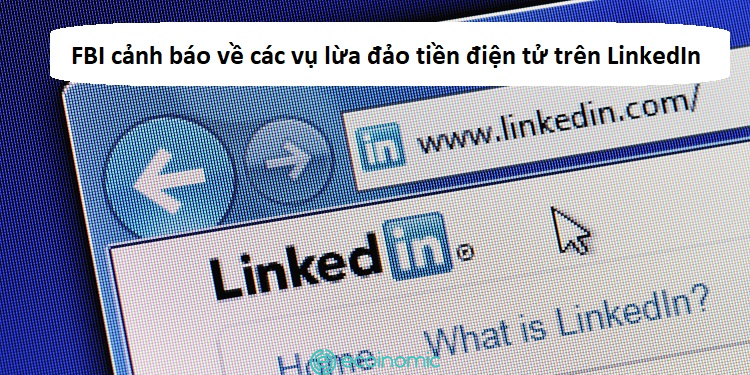Advertisement

FBI says fraud on LinkedIn a 'significant threat' to platform and consumers https://t.co/mBVxrf44Wy
— CNBC (@CNBC) June 17, 2022

Advertisement
Crypto investment scammers on LinkedIn are a “significant threat” to user safety, FBI Special Agent Sean Ragan said Friday.

Scammers investing in cryptocurrencies on LinkedIn are a “significant threat” to user safety, FBI special agent Sean Ragan said Friday.
FBI says fraud on LinkedIn a 'significant threat' to platform and consumers https://t.co/mBVxrf44Wy
— CNBC (@CNBC) June 17, 2022
In an interview with CNBC , Ragan said he believes LinkedIn has a problem when it comes to investment scams.
“This type of fraudulent activity is significant,” Ragan said. “There will be many people at high risk of becoming victims, and there are a lot of victims in the past and present.”
The Microsoft-owned social network claims to have 830 million members in more than 200 countries.
These scammers aren’t lazy either, so they seem very convincing.
Ragan told the network: “They’re always thinking about different ways to victimize people, victimize companies.”And they take the time to do their homework, identify their goals and strategies as well as the tools and tactics they use.”
According to Regan, the FBI has noticed an increase in investment-related fraudsters. The Federal Trade Commission has reported that U.S. cryptocurrency traders lost $575 million as a result of investment fraud between January 2021 and March 2022.
LinkedIn insists on business news and relationships, which can create a false sense of security in the context of popular online romances and scams.The CNBC report notes that fake profiles often claim to be related to legitimate and successful companies, or represent people with “entrepreneurship.”

Oscar Rodriguez, LinkedIn’s director of trust, privacy and equity, acknowledged the growing number of scammers on its platform.
“Over the past few months, we’ve seen an increase in fraudulent activity taking place on the Internet, including here on LinkedIn,” Rodriguez wrote in a blog post Thursday.
The company said it has a track record of proactively removing suspicious content and accounts it suspects could lead to fraud. By 2021, LinkedIn has removed more than 136 million cases of spam and Phishing content on its platform, according to a recent company transparency report.It also removed more than 31.6 million fake accounts last year.
Rodriguez told CNBC that “proactive education” about the risks of using LinkedIn is something he wants to see in the future.
LinkedIn does not currently offer profile verification to notable users, unlike Twitter and Instagram.But even verification isn’t easy: Twitter has also seen verified accounts abused by cryptocurrency and NFT scammers.
Related Posts: